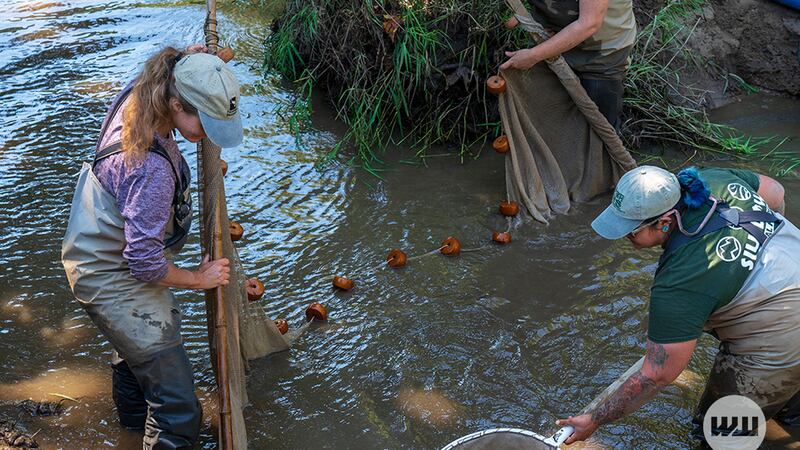When our watersheds are healthy, our fish are healthy, and so is Oregon. The state's watersheds are home to delicate ecosystems of plant and wildlife — from the wetlands and rivers to the ocean — that make our state a natural wonder. We need to treat them better.
Oregon Lottery is already doing their part to help these natural havens. Watershed enhancement became a beneficiary of Oregon Lottery Funds in 1999, and to date it has allocated over $750 million in lottery funds to help clean-up our beaches, rivers and watersheds. Since then, the Oregon Watershed Enhancement Board has administered lottery funds to more than 7,000 projects, making big impacts directly in Oregon communities.
Oregon's water systems need not just the contributions from the Oregon Lottery, but also from people helping preserve the watersheds. Picking up trash is a good place to start. In September, thousands of Oregonians will do just that.
But first, what’s a watershed?
Watersheds are zones where all surface and groundwater drain to the same river, stream, wetland or ocean. On land, we're at the top of the watershed in the sense that water from our higher ground goes down into our surrounding streams like the Columbia or Willamette Rivers, and eventually drain out into the Pacific Ocean.
But for those living in the lower levels of the watershed, the water carries down what's higher up. That's why pollution and garbage always hurt fish and wildlife downstream, even when they aren't dumped directly into a river.
How do we know our watersheds are threatened?
Our native fish are good indicators of watershed quality; in particular, salmon are very sensitive to the condition of watersheds. And they're reporting back that it's not great. In fact, the Chinook salmon population has declined by 60% since 1984, according to the Environmental Protection Agency.
One culprit killing the fish is the trash polluting our rivers and ocean. When it piles up, it blocks water flow and disrupts the salmon life-cycle. It's one of the many reasons that trash is more than just an eyesore.
So what can you do about the pollution?
Join the Oregon Lottery's efforts to restore watersheds by participating in the SOLVE Beach and Riverside Clean-up. Happening on Saturday, Sept. 21 from 9-noon, it gives Oregonians a chance to help. It's BYOB (bring your own bucket or reusable bag), and there will be over 100 clean-ups to choose from on the coast and across the state.
The Beach and Riverside Clean-up began in 1984 as part of the International Coastal Cleanup. Every year, thousands of volunteers around the world head to the beach to pick up cigarette butts, plastic bags and more — keeping harmful waste out of the ocean.
Oregonians have fought pollution en masse before. During 2017's cleanup, 4,194 volunteers collected over 30,000 pieces of trash from Oregon's beaches and rivers, totaling 73,626 pounds. This year, the organizers hope to collect even more.
Cleaning up the watersheds has shown to make a real difference in Oregon's land. In one case in Lane County, the Oregon Lottery dollars helped turn abandoned mining pits into sanctuaries for fish lined with native plants. As a result, the restored ecosystem welcomed beaver, geese, and even black bears back into what was once abandoned.
Similar stories are happening all over the state, thanks to watershed restoration.
It starts with cleaning up the garbage strewn across the outdoors. So, on September 21, put on some gloves, grab your reusable bags (and some snacks) and head to the water. There's an open invitation from SOLVE and the Oregon Lottery to all Oregonians who want to make a difference.
For more info, and to find events near you, visit solveoregon.org/beach-riverside-cleanup or the Facebook event page. Advanced registration is encouraged, but not required.
